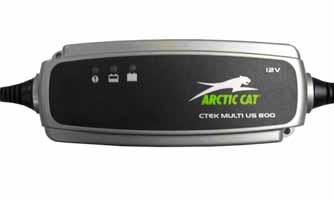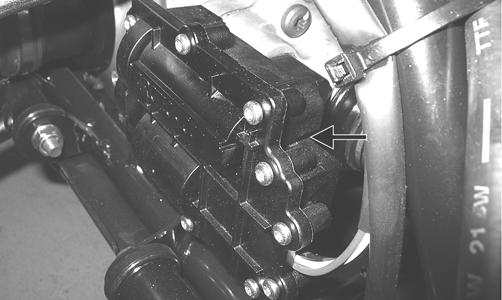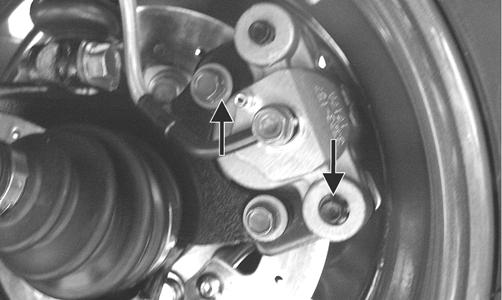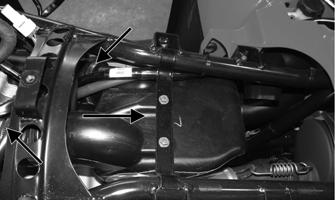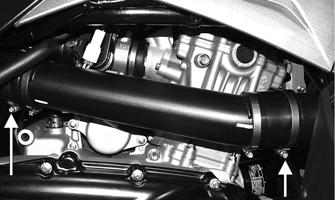Electrical System NOTE: Certain components and sensors can be checked by using the EFI diagnostic system and digital gauge (see EFI Diagnostic System in this section for more information).
This section has been organized into sub-sections which show procedures for the complete servicing of the Arctic Cat ATV electrical system. The electrical connections should be checked periodically for proper function. In case of an electrical failure, check fuses, connections (for tightness, corrosion, damage), and/or bulbs. SPECIAL TOOLS A number of special tools must be available to the technician when performing service procedures in this section. Refer to the current Special Tools Catalog for the appropriate tool description. Fluke Model 73 Multimeter
Description
p/n 0644-191
Fluke Model 77 Multimeter
0644-559
MaxiClips
0744-041
Timing Light
0644-296
Peak Voltage Reading Adapter
0644-307
After being in service, batteries require regular cleaning and recharging in order to deliver peak performance and maximum service life. The following procedure is recommended for cleaning and maintaining a sealed battery. Always read and follow instructions provided with battery chargers and battery products. NOTE: Refer to all warnings and cautions provided with the battery or battery maintainer/charger.
Loss of battery charge may be caused by ambient temperature, ignition OFF current draw, corroded terminals, self discharge, frequent start/stops, and short engine run times. Frequent winch usage, snowplowing, extended low RPM operation, short trips, and high amperage accessory usage are also reasons for battery discharge. Maintenance Charging NOTE: Arctic Cat recommends the use of the CTEK Multi US 800 or the CTEK Multi US 3300 for battery maintenance charging. Maintenance charging is required on all batteries not used for more than two weeks or as required by battery drain.
NOTE: Special tools are available from the Arctic Cat Service Department.
TESTING ELECTRICAL COMPONENTS All of the electrical tests should be made using the Fluke Model 73 Multimeter or Fluke Model 77 Multimeter and when testing peak voltage, the Peak Voltage Reading Adapter must be used. If any other type of meter is used, readings may vary due to internal circuitry. When troubleshooting a specific component, always verify first that the fuse(s) are good, that the bulb(s) are good, that the connections are clean and tight, that the battery is fully charged, and that all appropriate switches are activated. NOTE: For test accuracy, all tests should be made at room temperature approximately 68° F.
Battery NOTE: Preliminary checks may be performed on this component using the diagnostic mode on the LCD gauge (see EFI Diagnostic System in this section)
800E
1. When charging a battery in the vehicle, be sure the ignition switch is in the OFF position. 2. Clean the battery terminals with a solution of baking soda and water. NOTE: The sealing strip should NOT be removed and NO fluid should be added.
3. Be sure the charger and battery are in a well-ventilated area. Be sure the charger is unplugged from the 110-volt electrical outlet. 4. Connect the red terminal lead from the charger to the positive terminal of the battery; then connect the black terminal lead of the charger to the negative terminal of the battery. NOTE: Optional battery charging adapters are available from your authorized Arctic Cat dealer to connect directly to your vehicle from the recommended chargers to simplify the maintenance charging process. Check with your authorized Arctic Cat dealer for proper installation of these charging adapter connectors.
5. Plug the battery charger into a 110-volt electrical outlet. 79

